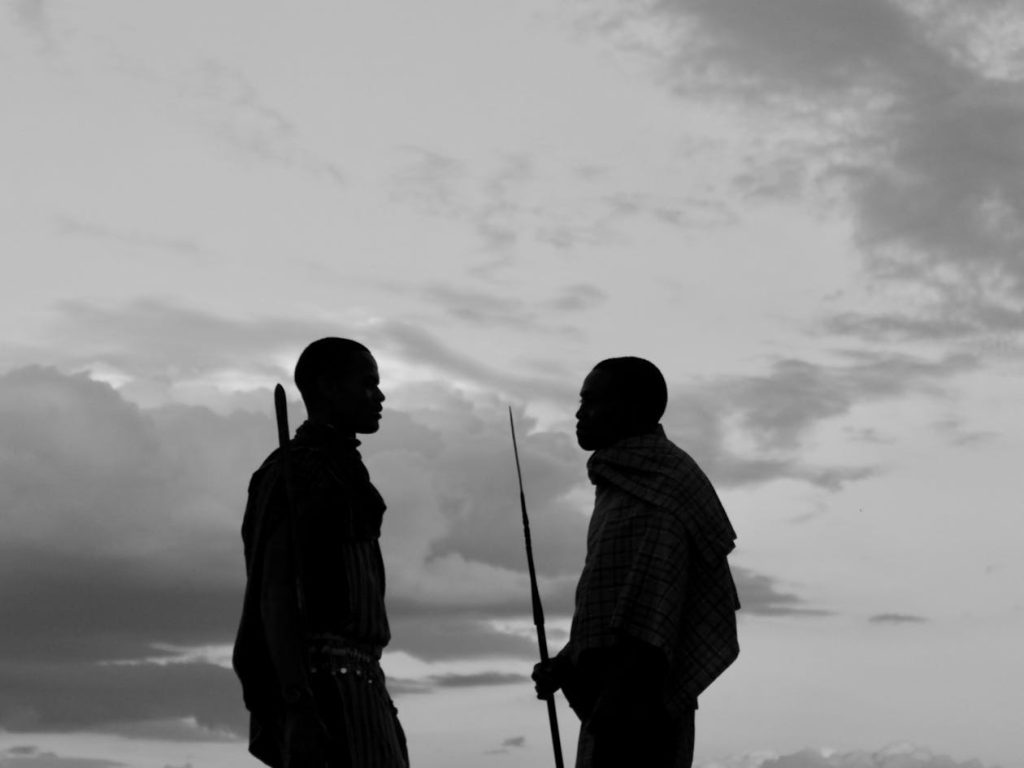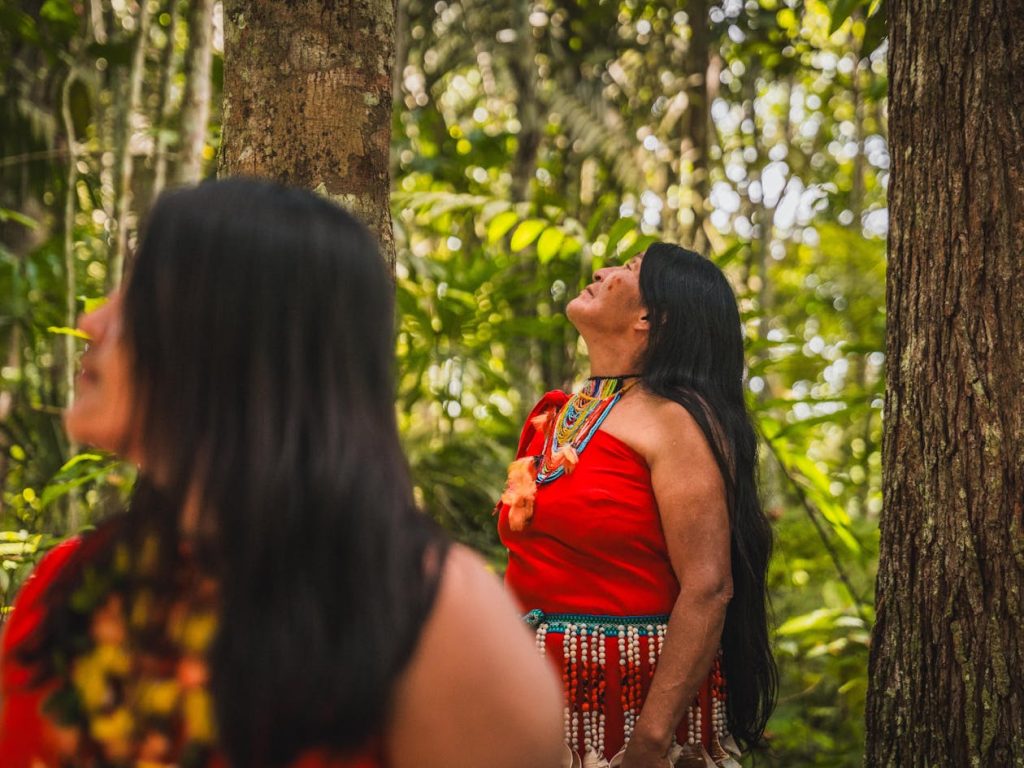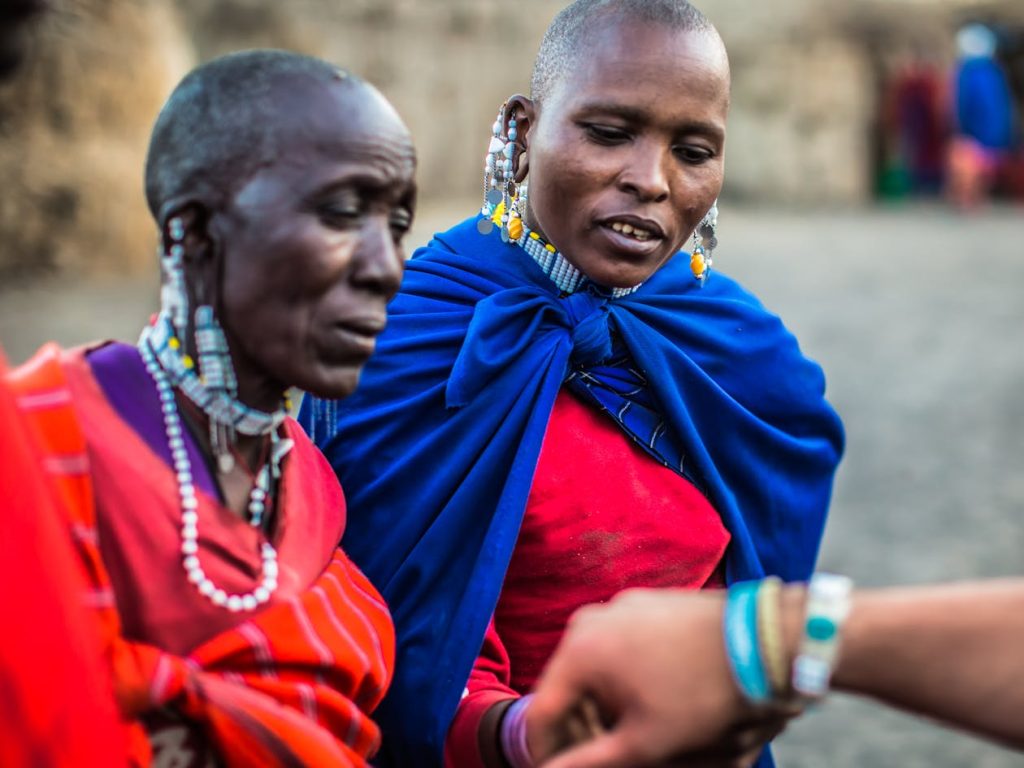Your cart is currently empty!
Missing US Woman Found Living Totally Different Life Thousands of Miles Away

Missing person cases typically follow predictable patterns. Family members contact police, investigators examine recent activities, and search efforts focus on familiar locations where someone might reasonably disappear. Few families expect their search to end thousands of miles away in a foreign country where their loved one has adopted an entirely new identity and way of life.
Kaura Taylor’s family experienced exactly this type of shocking discovery when they reported the Texas native missing. While relatives worried about her safety and whereabouts, Taylor had transformed herself completely, taking on a new name, joining an unusual group, and embracing beliefs that would seem impossible to anyone who knew her previous life.
Her story reveals how someone can vanish from their familiar world and emerge in circumstances so extraordinary that family members might struggle to recognize the person they once knew. What authorities eventually discovered challenged assumptions about missing persons, religious freedom, and how far people will travel to find their true calling.
Scottish Forest Reveals American Woman’s Hidden World
Investigators tracking Taylor’s whereabouts discovered her living in a forest near Jedburgh, Scotland, approximately 41 miles south of Edinburgh. However, finding her location represented only the beginning of a far more complex story about identity, transformation, and rejection of conventional society.
Taylor now lives under the name “Asnat” and has completely abandoned her previous Texas lifestyle. Instead of modern amenities and urban conveniences, she has chosen to dwell in primitive conditions within Scottish woodlands, embracing a lifestyle that most Americans would find unimaginable.
Her transformation extends beyond simply changing locations or adopting a new name. Taylor has joined a group that rejects modern society, conventional religious practices, and governmental authority. Her new life represents a complete philosophical and practical departure from everything she once knew.
Family members who reported her missing likely never imagined their search would lead to discovering someone living voluntarily in forest conditions, having chosen poverty and isolation over comfort and familiarity.
Meet the Kingdom of Kubala: Modern Day Lost Tribe
Taylor’s new community calls itself the Kingdom of Kubala, a group that claims ancestral connections to Scottish land and Hebrew heritage. Led by King Atehene, formerly an opera singer known as Kofi Offeh, the group maintains a strict hierarchy with defined roles for each member.
King Atehene, age 36, serves as the spiritual and practical leader of their small community. His wife, Queen Nandi, born Jean Gasho, supports his leadership while Taylor functions as their handmaiden in what they describe as a royal court structure.
Group members have completely rejected their former identities and adopted new names reflecting their spiritual transformation. Each person has embraced beliefs and practices that would seem foreign to their previous associates and family members.
Their community structure reflects both religious conviction and practical necessity for survival in challenging forest conditions. Members depend on each other for basic needs, including food, shelter, and protection from both elements and authorities.
From Opera Singer to Self-Proclaimed Royal Leader

King Atehene’s background reveals how dramatically people can transform their lives when pursuing a spiritual calling. Previously performing as opera singer Kofi Offeh, he abandoned his entertainment career to establish what he considers a divinely mandated kingdom.
His transition from artistic performance to religious leadership demonstrates how individuals can reinvent themselves completely when pursuing what they believe represents their true purpose. Professional success in opera requires years of training and dedication, yet Atehene abandoned this achievement to live in primitive forest conditions.
Claims of royal lineage and divine appointment provide spiritual justification for his leadership role within the group. Members accept his authority based on religious conviction rather than conventional qualifications or democratic selection processes.
Atehene’s transformation from entertainer to self-proclaimed king illustrates how spiritual experiences can motivate people to abandon successful careers and comfortable lifestyles in pursuit of what they consider a higher calling.
Ancient Claims About Modern Scotland
Kingdom of Kubala members believe they represent a lost Hebrew tribe with ancestral claims to Scottish territory. According to their interpretation of history, black Jacobites were native to Scotland before Queen Elizabeth I allegedly deported them 400 years ago.
King Atehene claims direct descent from David the Messiah, providing what he considers divine authority for reclaiming Scottish land. Group members view their forest settlement as a rightful return to ancestral territory rather than an illegal occupation.
Historical claims about black Jacobites and mass deportations provide religious and political justification for rejecting contemporary property laws and governmental authority. Members believe their spiritual heritage supersedes modern legal frameworks.
Queen Nandi has shared their beliefs through social media, writing about reclaiming “Scotland as our homeland, a land stolen by Elizabeth the first 400 years ago when she deported all black people from Scotland and England, who were not Africans but natives of the land.”
Living Off Grid in Scottish Wilderness

Daily life for Kingdom of Kubala members involves primitive conditions that most modern people would find extremely challenging. Without electricity, running water, or conventional shelter, they depend entirely on natural resources and cooperation.
King Atehene described their lifestyle: “We live a very simple life of returning to innocence. We connect to nature. We connect to the trees around us. We get grounded every morning. We bathe in the springwater. We are living a simple life of relying daily on the creator for food, shelter and clothing. We live in a tent without walls, but we are not afraid of anyone, for we have the protection of the creator, Yahowah.”
Members bathe in nearby streams regardless of Scottish weather conditions, demonstrating commitment to their chosen lifestyle despite obvious hardships. Food acquisition depends on foraging, donations, or divine provision according to their beliefs.
Tent living provides minimal protection from Scottish climate extremes, yet members express confidence that spiritual protection compensates for physical vulnerability. Their faith in divine care allows them to accept living conditions that most people would consider dangerous.
Prophecy and Pilgrimage Drive Forest Mission
Religious prophecy motivates the Kingdom of Kubala’s settlement efforts and provides members with a sense of divine purpose for their challenging lifestyle. King Atehene believes he was called to fulfill ancient predictions about tribal restoration.
According to their interpretation, prophecy mandated a return to Scottish territory after 400 years of exile and identity loss. Members view their forest settlement as fulfilling biblical prophecy rather than simply choosing an alternative lifestyle.
King Atehene explained: “The prophecy said, ‘after 400 years, when my ancestors are destroyed from the land of Scotland, from the land of Great Britain, they will go into captivity and lose their identity. But after 400 years, I will come and bring them back to the land of promise. I am following the ancestral call and the call of the gods. The calling from our creator to embark on this journey, is the most important thing in our life. It is a journey of hope — a pilgrimage.”
Spiritual mission provides meaning that transcends physical hardships and legal challenges. Members accept difficulties as necessary elements of fulfilling divine purpose rather than reasons to abandon their chosen path.
Authorities Close In With Eviction Notices and Attacks

Scottish Borders Council has served eviction notices to Kingdom of Kubala members, creating legal pressure to abandon their forest settlement. However, group members reject governmental authority and refuse to comply with conventional property laws.
Conflict with authorities has escalated beyond paperwork to include physical attacks on their campsite. Someone set fire to their tents, demonstrating how their presence has generated hostility from unknown individuals opposed to their settlement.
Police Scotland works with local council officials to address the situation while balancing religious freedom concerns with property law enforcement. Officials offer housing assistance and support services that group members consistently reject.
Group members maintain that only their God Yahowah has authority over their actions and location. Rejection of local laws creates ongoing tension with authorities who must enforce property regulations while respecting religious expression.
“I’m Not Missing”: Taylor Speaks for Herself
View this post on Instagram
When confronted about her missing person status, Taylor firmly rejected family concerns and official intervention in her chosen lifestyle. Her response demonstrates complete commitment to her transformation and new identity.
“To the U.K. authorities, obviously I am not missing,” she stated in a video message. “Leave me alone. I am an adult, not a helpless child.”
Taylor’s assertion of independence challenges assumptions about missing person cases and family authority over adult relatives. Her statement reflects a complete rejection of previous identity and relationships in favor of a chosen spiritual community.
Adult autonomy allows Taylor to make decisions that family members might consider harmful or irrational. Her case illustrates complex tensions between family concern and individual freedom to make radical lifestyle choices.
Government Response: Support vs Enforcement

Scottish authorities face a difficult balance between enforcing property laws and respecting religious freedom expressed through unconventional lifestyle choices. Officials attempt to provide support services while managing legal violations.
Scottish Borders Council spokesman confirmed they are “working with Police Scotland” to address the ongoing situation, including “provision of advice and information about housing options and other support services.”
Government response demonstrates an attempt to resolve the situation through assistance rather than force, recognizing that aggressive enforcement might escalate tensions or create public relations problems.
However, property law violations cannot be ignored indefinitely, creating pressure for eventual enforcement action despite officials’ preference for voluntary compliance through supportive intervention.
Modern Tribes in Ancient Lands

Kingdom of Kubala’s future remains uncertain as winter approaches in the Scottish Highlands. Primitive living conditions that challenge survival during mild weather become potentially deadly during severe Scottish winters.
Group members express confidence in divine protection and provision, but practical survival requires adequate shelter, food, and warmth that their current arrangements might not provide during harsh weather conditions.
Legal pressure continues building as authorities balance enforcement needs with religious freedom protections. Eventually, eviction proceedings may require physical removal if group members continue rejecting voluntary relocation.
Taylor’s case may inspire others seeking alternative lifestyles or spiritual communities, potentially creating precedent for similar groups attempting to establish settlements on claimed ancestral lands. Her transformation from missing Texas woman to Scottish forest dweller illustrates how far individuals will travel and sacrifice to pursue what they consider an authentic spiritual calling.
Whether the Kingdom of Kubala survives the Scottish winter and legal challenges remains to be seen, but Taylor’s journey demonstrates how completely people can reinvent themselves when pursuing beliefs that transcend conventional society’s expectations and limitations.
